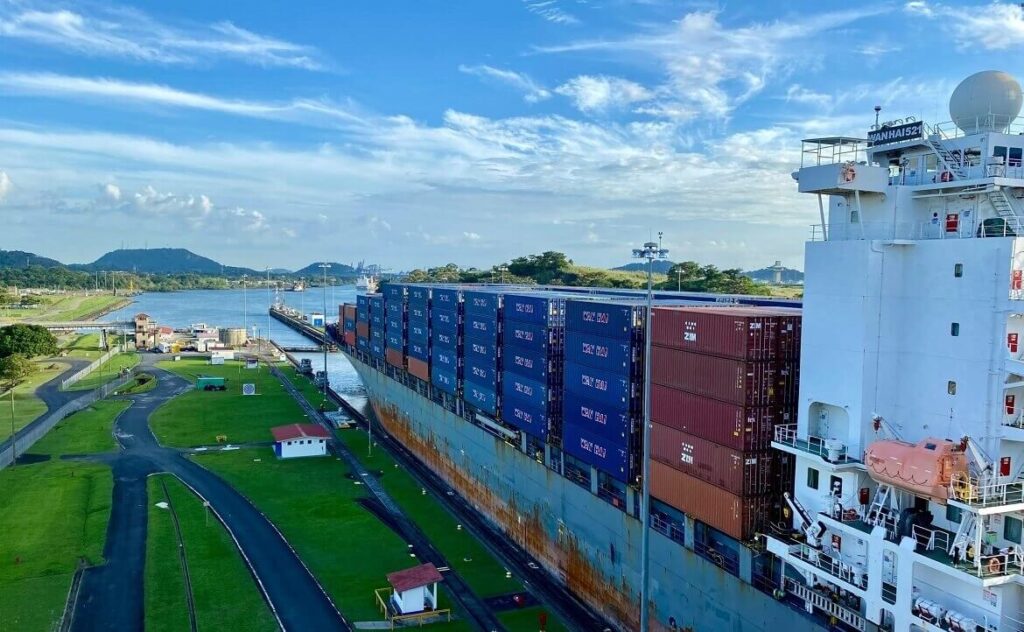Environmental policy and globalization are intricately intertwined concepts that significantly influence each other in today’s interconnected world.

Globalization, characterized by the increasing interconnectedness and interdependence of economies, societies, and cultures, has both positive and negative impacts on environmental policy:
a. International Cooperation: Globalization has facilitated greater international cooperation on environmental issues. Nations are increasingly recognizing that environmental problems such as climate change, biodiversity loss, and pollution transcend national borders and require collaborative efforts to address effectively. As a result, there has been a proliferation of international environmental agreements and treaties aimed at mitigating environmental degradation and promoting sustainable development.
b. Transboundary Pollution: Globalization has led to the emergence of complex supply chains and increased trade activities, which can result in transboundary pollution. Environmental policies in one country can be undermined by pollution generated in another country but impacting the global environment. Addressing transboundary pollution requires coordinated efforts among nations and often necessitates the development of multilateral environmental agreements.
c. Regulatory Arbitrage: Globalization can also create challenges for environmental policy implementation due to regulatory arbitrage, where multinational corporations exploit differences in environmental regulations between countries to minimize costs. Weaker environmental standards in some countries can lead to environmental degradation as industries relocate production to areas with less stringent regulations. This phenomenon highlights the need for harmonization of environmental standards and regulations across countries.
d. Technology Transfer: Globalization facilitates the transfer of environmentally friendly technologies between countries. Developed countries often have more advanced environmental technologies, which can be shared with developing countries to help them leapfrog to cleaner and more sustainable development pathways. International cooperation on technology transfer is essential for promoting global environmental sustainability.
e. Social and Economic Impacts: Globalization can have significant social and economic impacts on communities, which can, in turn, affect environmental policy outcomes. For example, trade liberalization policies may lead to increased economic growth but also exacerbate income inequality and environmental injustices. Environmental policies must consider these social and economic dimensions to ensure equitable and sustainable outcomes for all.
In conclusion, environmental policy and globalization are deeply interconnected phenomena that require integrated and collaborative approaches to address global environmental challenges effectively. While globalization presents opportunities for international cooperation and technology transfer, it also poses challenges such as regulatory arbitrage and transboundary pollution that necessitate coordinated policy responses at the global level.
Effects of globalisation
The effects of globalization on environmental policy are multifaceted and can be both positive and negative:
a. Increased Awareness and Cooperation: Globalization has increased awareness of environmental issues on a global scale. The interconnectedness of economies and societies has made it evident that environmental problems transcend national borders and require collaborative efforts to address. This has led to the development of international environmental agreements and treaties aimed at tackling issues such as climate change, biodiversity loss, and pollution.
b. Pressure for Harmonization: Globalization has led to increased pressure for harmonization of environmental policies and standards across countries. Disparities in environmental regulations between countries can create opportunities for regulatory arbitrage, where businesses relocate production to countries with weaker environmental standards. To prevent this, there is a growing push for the alignment of environmental regulations to ensure a level playing field for businesses while promoting environmental sustainability.
c. Market Integration: Globalization has integrated global markets, leading to increased consumption and production patterns. This can put pressure on natural resources and exacerbate environmental degradation. Environmental policies need to adapt to these changing consumption and production patterns by promoting sustainable practices and encouraging the adoption of green technologies.
d. Corporate Influence: Globalization has empowered multinational corporations to operate across borders and influence environmental policies. While some corporations may voluntarily adopt environmentally sustainable practices, others may prioritize profit over environmental concerns. This highlights the importance of robust regulatory frameworks to hold corporations accountable for their environmental impact and incentivize sustainable business practices.
e. Environmental Justice Concerns: Globalization can exacerbate environmental injustices, particularly in developing countries where environmental regulations may be weaker, and communities may bear the brunt of environmental degradation associated with industrial activities. Environmental policies need to address these social and economic dimensions to ensure equitable and sustainable outcomes for all.
Overall, globalization presents both opportunities and challenges for environmental policy. Effective environmental policies in the era of globalization require a holistic approach that considers the interconnectedness of economies, societies, and the environment, while promoting sustainable development for present and future generations.
Prospects of environmental policy
The prospects of environmental policy in the context of globalization hold both challenges and opportunities:
a. Innovation and Technology Transfer: Globalization facilitates the transfer of environmentally friendly technologies between countries. Advanced economies can share their expertise and technologies with developing nations to help them leapfrog to cleaner and more sustainable development pathways. Environmental policy can leverage globalization to promote innovation and technology transfer, accelerating the transition to a greener economy.
b. Market Incentives for Sustainability: Globalization integrates global markets, providing opportunities to leverage market mechanisms for environmental conservation. Environmental policy can harness market incentives such as carbon pricing, eco-labelling, and green investment incentives to promote sustainable consumption and production patterns. By aligning economic incentives with environmental goals, globalization can drive positive environmental outcomes.
c. Corporate Accountability and Responsibility: Globalization empowers multinational corporations to operate across borders, but it also increases scrutiny and demand for corporate accountability. Environmental policy can leverage globalization to hold corporations accountable for their environmental impact and promote corporate responsibility. Measures such as mandatory environmental reporting, supply chain transparency, and corporate sustainability standards can incentivize businesses to adopt environmentally sustainable practices.
d. Green Trade and Investment: Globalization facilitates trade and investment flows, offering opportunities to promote green trade and investment. Environmental policy can promote sustainable trade by incorporating environmental criteria into trade agreements, supporting green industries, and incentivizing sustainable investment practices. By aligning trade and investment policies with environmental objectives, globalization can drive sustainable economic growth.
e. Environmental Justice and Equity: Globalization raises concerns about environmental justice and equity, particularly in vulnerable communities disproportionately affected by environmental degradation. Environmental policy can address these challenges by prioritizing equity considerations in decision-making processes, promoting inclusive and participatory governance, and ensuring that environmental benefits and burdens are distributed fairly across society.
f. Resilience and Adaptation to Global Environmental Changes: Globalization increases vulnerability to global environmental changes such as climate change and biodiversity loss. Environmental policy can promote resilience and adaptation by integrating climate adaptation measures into development planning, investing in ecosystem restoration and conservation, and building adaptive capacity in vulnerable communities.
By fostering resilience, globalization can help societies better cope with and adapt to environmental changes. In nutshell, the prospects of environmental policy in globalization depend on the ability of policymakers to leverage the opportunities presented by globalization while addressing its associated challenges.
Author: Dr. Rajkumar Singh – Youth motivator and former Head of the University Department of Political Science, B.N. Mandal University, Madhepura, Bihar, India.
(The views expressed in this article belong only to the author and do not necessarily reflect the views of World Geostrategic Insights)
Image Credit: Rikin Katyal







